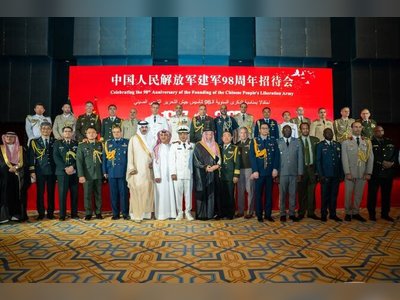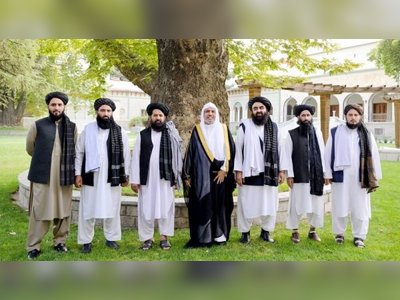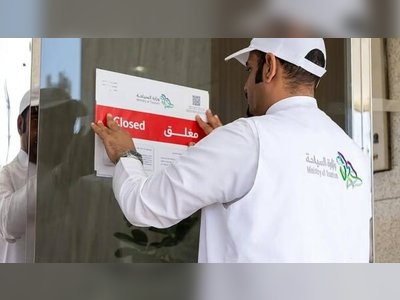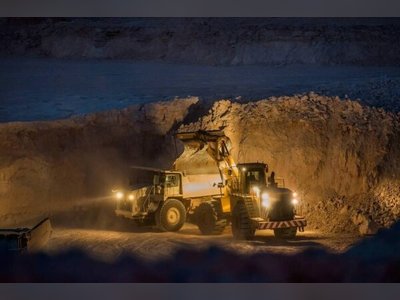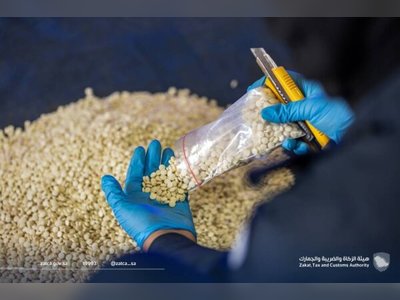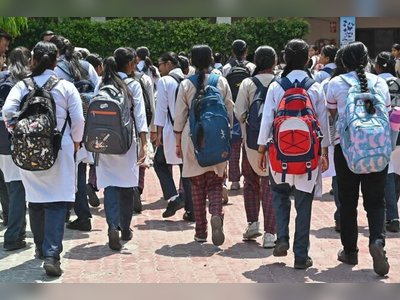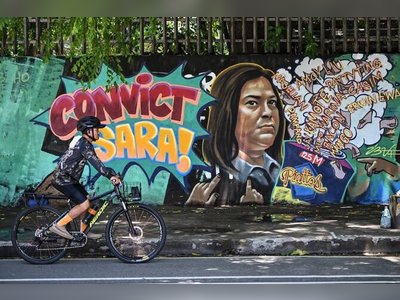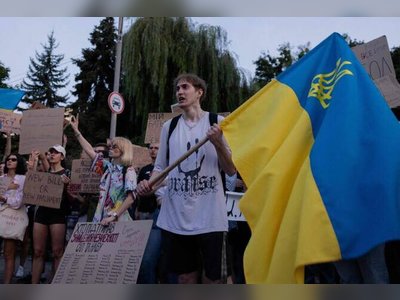
Clashes Erupt Between Thai and Cambodian Soldiers Over Disputed Border Areas
Multiple areas see armed conflict as diplomatic relations between nations deteriorate, resulting in civilian injuries.
BANGKOK: Tensions along the border between Thailand and Cambodia escalated on Thursday as soldiers from both countries engaged in a series of clashes across disputed territories.
The deterioration of diplomatic ties led to these skirmishes, which saw three civilians injured amidst the ongoing conflict.
The situation took a grave turn when both nations downgraded their diplomatic relations to the lowest level.
This escalation was sparked by Thailand's closure of its northeastern border crossings with Cambodia and the withdrawal and expulsion of diplomats from both sides in response to a land mine blast that wounded five Thai soldiers.
The Prasat Ta Moan Thom temple area, a historically contentious site along the border of Surin province in Thailand and Oddar Meanchey province in Cambodia, was one of the initial flashpoints for Thursday's clashes.
Prime Minister Hun Manet of Cambodia accused Thailand of attacking Cambodian army positions at this site as well as Prasat Ta Krabey, while the Thai military reported that artillery fire from Cambodia struck a residential area in Surin province, causing injuries to civilians who were subsequently evacuated.
Both countries have long-standing claims over these border territories, with the Preah Vihear temple dispute being a notable historical source of tension.
In 1962, the International Court of Justice awarded sovereignty over the temple area to Cambodia, a decision that has been a recurring point of contention and a symbol of unresolved issues between the two nations.
The situation remains volatile as both sides have accused each other of initiating the hostilities.
The Thai military reported hearing an unmanned aerial vehicle before observing armed Cambodian soldiers approaching their positions, leading them to attempt to de-escalate the situation through verbal means until shots were fired.
In response, Cambodia maintained that it acted strictly in self-defense against what was perceived as an unprovoked incursion into its territory.
As the clashes continued and concerns grew over potential escalations, Cambodian Senate President Hun Sen urged citizens not to panic and expressed confidence in their government's handling of the situation.
Meanwhile, the Thai embassy in Phnom Penh advised nationals in Cambodia to leave if possible and cautioned others against travel to the country unless absolutely necessary.
This latest round of violence highlights the complex and historically charged nature of border disputes between Thailand and Cambodia, which have periodically erupted into conflict over territorial claims dating back centuries.
The ongoing tensions are not only a regional concern but also reflect deeper historical grievances and nationalist sentiments that continue to fuel these disputes.
The deterioration of diplomatic ties led to these skirmishes, which saw three civilians injured amidst the ongoing conflict.
The situation took a grave turn when both nations downgraded their diplomatic relations to the lowest level.
This escalation was sparked by Thailand's closure of its northeastern border crossings with Cambodia and the withdrawal and expulsion of diplomats from both sides in response to a land mine blast that wounded five Thai soldiers.
The Prasat Ta Moan Thom temple area, a historically contentious site along the border of Surin province in Thailand and Oddar Meanchey province in Cambodia, was one of the initial flashpoints for Thursday's clashes.
Prime Minister Hun Manet of Cambodia accused Thailand of attacking Cambodian army positions at this site as well as Prasat Ta Krabey, while the Thai military reported that artillery fire from Cambodia struck a residential area in Surin province, causing injuries to civilians who were subsequently evacuated.
Both countries have long-standing claims over these border territories, with the Preah Vihear temple dispute being a notable historical source of tension.
In 1962, the International Court of Justice awarded sovereignty over the temple area to Cambodia, a decision that has been a recurring point of contention and a symbol of unresolved issues between the two nations.
The situation remains volatile as both sides have accused each other of initiating the hostilities.
The Thai military reported hearing an unmanned aerial vehicle before observing armed Cambodian soldiers approaching their positions, leading them to attempt to de-escalate the situation through verbal means until shots were fired.
In response, Cambodia maintained that it acted strictly in self-defense against what was perceived as an unprovoked incursion into its territory.
As the clashes continued and concerns grew over potential escalations, Cambodian Senate President Hun Sen urged citizens not to panic and expressed confidence in their government's handling of the situation.
Meanwhile, the Thai embassy in Phnom Penh advised nationals in Cambodia to leave if possible and cautioned others against travel to the country unless absolutely necessary.
This latest round of violence highlights the complex and historically charged nature of border disputes between Thailand and Cambodia, which have periodically erupted into conflict over territorial claims dating back centuries.
The ongoing tensions are not only a regional concern but also reflect deeper historical grievances and nationalist sentiments that continue to fuel these disputes.

